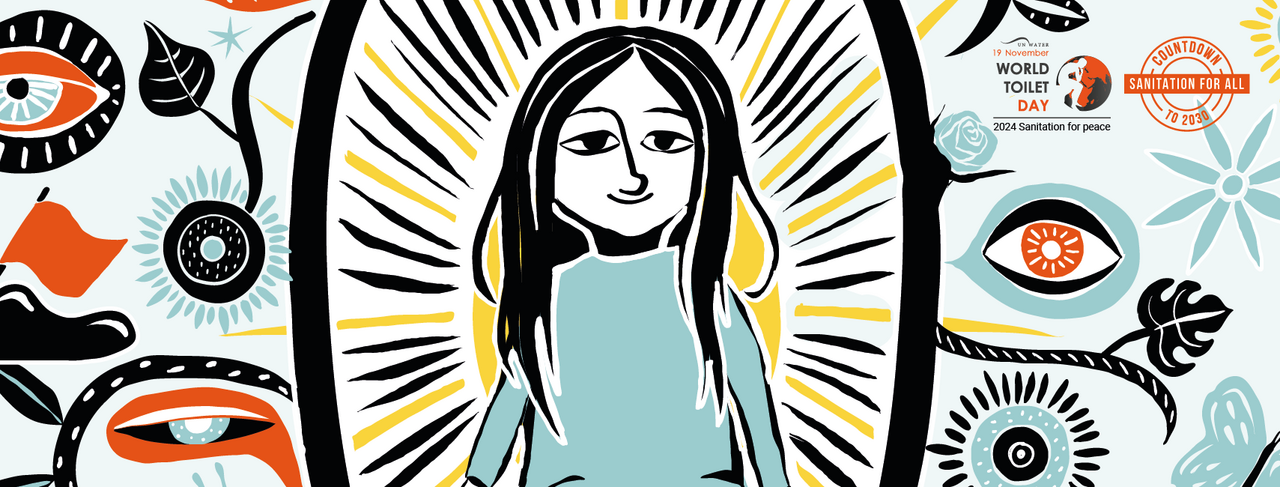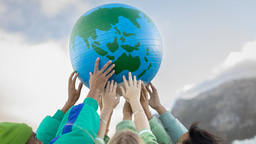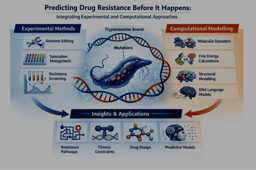World Toilet Day 2024: Transforming Lives Through Sanitation
Published in Social Sciences, Earth & Environment, and Sustainability

World Toilet Day, observed annually on November 19th, sheds light on the critical importance of sanitation. While sanitation is a universal human right, 2 billion people still lack basic hygiene services, including 653 million with no facility at all. (WHO/UNICEF, 2023)
However, sanitation is not just about hygiene; it’s about dignity, health, and prosperity. Everyone deserves safe and affordable access to sanitation across all aspects of life – at home, school, work, and public places. A private, hygienic, and culturally acceptable toilet is essential for maintaining human dignity and well-being.
Despite global efforts, we as a society are seriously off track to achieve safely managed sanitation for all by 2030 (as outlined in UN’s Sustainable Development Goal 6). This lack of progress has far-reaching consequences, affecting not only sanitation but also nutrition, health, gender equality, education, sustainability, and environmental cleanliness.
Women and girls are disproportionately affected by inadequate sanitation.
-
Without safely managed sanitation, women and girls are more vulnerable to ill-health. Lack of proper facilities affects their safety, well-being, and overall quality of life.
-
Women are primary caregivers in many societies, which also disproportionately affects them in cases of inadequate water availability or sanitation.
-
Insufficient sanitation facilities hinder women’s ability to study and work. Girls may miss school during menstruation due to inadequate toilets and perpetuating educational disparities. Women in the workforce face similar challenges, impacting their productivity and economic opportunities.
On World Toilet Day, let’s recognize that toilets are more than mere facilities – they are places for progress, dignity, and transformation. By prioritizing sanitation, we create a fairer, healthier, and more peaceful world for all, especially women and girls.
Research published by Springer Nature supporting the topic of Sanitation and expanding on gender equality includes
-
Systematic re-review of WASH trials to assess women’s engagement in intervention delivery and research activities [Open Access]
-
Achieving the Water and Sanitation Millennium Development Goal
-
Gender Transformative Planning for Urban Sanitation in India
-
Water Seekers, Carriers and Keepers: The Global and Gender Divide
-
Integrating Gender Equality in WASH Emergency Response in the Central African Republic
Please check out the SDG 6 Clean Water and Sanitation Hub here for all SDG 6 related information and events.
Follow the Topic
-
Discover Water

This journal is part of the Discover journal series. It is an open access, community-focussed journal publishing research from across all fields relevant to water research.
-
Nature Water

This journal publishes research on the evolving relationship between society and water resources on a monthly basis. It covers the natural sciences, engineering, and social sciences, with a particular interest in regards to interdisciplinary research.
What are SDG Topics?
An introduction to Sustainable Development Goals (SDGs) Topics and their role in highlighting sustainable development research.
Continue reading announcementRelated Collections
With Collections, you can get published faster and increase your visibility.
Water Resources Management in Transboundary Rivers under the Changing Environment
With the impacts of climate change, population growth, and economic development, global water resources are diminishing, exacerbating the ongoing water crisis. In response to development needs, riparian countries are increasingly prioritizing the development, utilization, and protection of water resources in transnational rivers. However, these efforts often lead to conflicts and tensions among riparian nations within transboundary river basins, primarily due to water scarcity. Such conflicts can escalate into economic, environmental, and ethnic disputes, potentially resulting in regional tensions or even wars. Addressing the evolving challenges of water resource conflicts in transboundary rivers requires a multifaceted approach. It is essential to accurately model the dynamics and pathways of water conflict scenarios, assess the spatio-temporal impacts of conflict risks, and establish consensus-building mechanisms to resolve disputes. Strengthening cooperation over shared water resources in transboundary rivers is pivotal for achieving sustainable development goals and fostering long-term regional stability.
Keywords: Water Resources Management, Transboundary Rivers, Changing Environment, Water Resource Conflicts, Cooperation Mechanism.
This Collection supports and amplifies research related to SDG 6 and SDG 17.
Publishing Model: Open Access
Deadline: Jun 30, 2026
Biological Treatment of Emerging Contaminants in Industrial Wastewater: Challenges and Innovations
Emerging contaminants in industrial wastewater are pollutants of growing concern due to their potential environmental and health risks. These substances, often inadequately removed by conventional treatment processes, include pharmaceuticals, personal care products, microplastics, heavy metals, and industrial chemicals such as polyfluoroalkyl substances (PFAS). As industrial activities expand, these contaminants increasingly threaten water quality and ecosystem health. Addressing these challenges requires advanced treatment technologies and a comprehensive understanding of their impacts on both human and environmental well-being. The biological treatment of emerging contaminants in industrial wastewater offers a sustainable and efficient alternative where conventional treatments often fall short.
Keywords: Emerging contaminants, Industrial wastewater, Pharmaceuticals, Microplastics, Endocrine disruptors, Heavy metals, PFAS, Advanced treatment technologies, Environmental impact.
This Collection supports and amplifies research related to SDG 3, SDG 6, SDG 12, and SDG 13.
Publishing Model: Open Access
Deadline: Sep 30, 2026




Please sign in or register for FREE
If you are a registered user on Research Communities by Springer Nature, please sign in